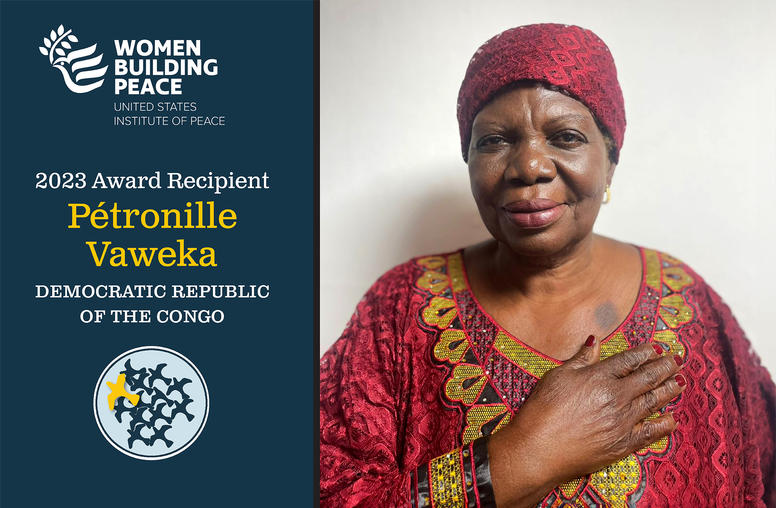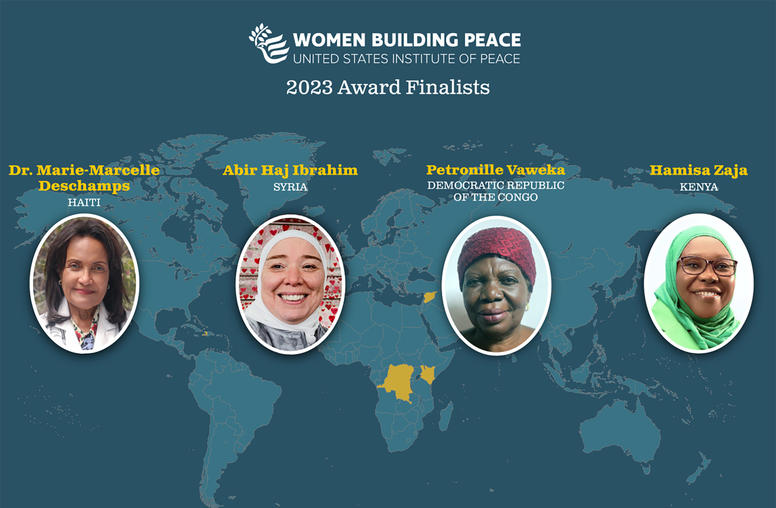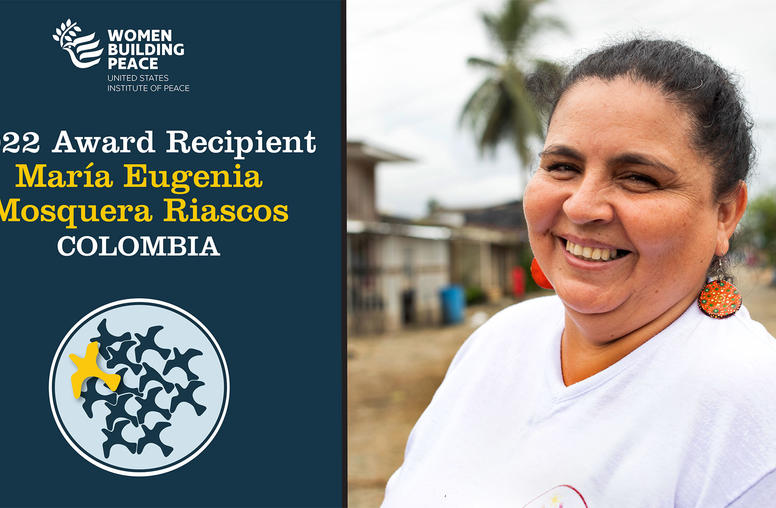2002-2003 Senior Fellows Announced
New Senior Fellows to join U.S. Institute of Peace.
WASHINGTON--The United States Institute of Peace is pleased to present its 2002-2003 Senior Fellows. This is the fifteenth class of fellows to be in residence at the Institute. The Jennings Randolph Fellowship Program is one of the Institute's core programs. Named in honor of former U.S. Senator Jennings Randolph of West Virginia, a vigorous proponent in the Institute's founding, the program affords leading policy practitioners and researchers opportunities to examine international conflict and peace issues of major concern.
In welcoming the new group, most of which will begin at the Institute in October, Fellowship Program Director Joseph Klaits said, "This is an especially outstanding group of fellows. Their projects address crisis zones including Afghanistan, South Asia, and the Middle East, and key issues including biosecurity, the militarizing of young people in ethnic conflict, and post-conflict reconstruction. The group includes retired senior generals from India and Pakistan, the Pulitzer Prize-winning journalist Roy Gutman, and two scholars from Africa including Francis Deng, a preeminent figure in African diplomacy and research."
In addition to addressing their special projects, fellows participate in the Institute's public outreach efforts by briefing the media, Congress, policymakers, and the public on international issues. Dr. Klaits said, "The contributions of some 200 Senior Fellows to the Institute's work over the years have been invaluable. Their integration with the Institute's ongoing work has profoundly enhanced our own research, education, and training programs. Alumni from the Jennings Randolph Fellowship Program can be found working on the front lines in the prevention, management, and resolution of international conflicts around the world." Books and reports resulting from fellowships are published by the Institute and are available both in print and on the Institute's website.
Senior Fellows are selected by the Institute's board of directors following an international competition. The submission deadline for the Senior Fellow program is September 15 of every year. Winners are chosen the following April. A full listing of former fellows along with their project topics and application material can be found online at www.usip.org.
2002-2003 Senior Fellows & Guest Scholars
Listed with Special Project Focus
Major General Dipankar Banerjee (Indian Army, ret.)
Executive Director, Centre for Strategic Studies, Colombo, Sri Lanka "Countering Internal Conflict: Lessons from the Indian Army's Experience"
Ambassador Francis Deng
Distinguished Professor, Graduate Center, City University of New York "Dilemmas of Self-Determination: A Challenge to African Constitutionalism"
Mr. Roy Gutman
Diplomatic Correspondent, Newsweek
"International Humanitarian Law and the Media: The Case of Afghanistan"
Professor Vivien Hart
School of English and American Studies, University of Sussex
"Making Constitutions, Seeking Peace"
Mr. Michael Hartmann
International Public Prosecutor, United Nations Mission in Kosovo
"International Prosecutors and Judges in Post-Conflict Societies"
Dr. Ray Jennings
Senior Field Adviser, Office of Transition Initiatives, U.S. Agency for International Development
"Participatory Community Revitalization Projects and Conflict Management"
General Jehangir Karamat (ret.)
Former Chairman of the Joint Chiefs and Chief of Army Staff, Pakistan "Conflict Resolution in South and South West Asia"
Commander Margaret G. Kibben
U.S. Navy Chaplain Corps
Project to be announced
Dr. Philip Mattar
Former Executive Director, Institute for Palestine Studies
"Palestinian Missed Opportunities"
Professor Masipula Sithole
Department of Political and Administrative Studies, University of Zimbabwe
"Risk Taking in Zimbabwe: The Impact of Mugabe's Policies in Southern Africa"
Dr. Marie Smyth
Chief Executive, Institute for Conflict Research, Northern Ireland
"The Political and Martial Role of Youth in Violently Divided Societies and the Implications for Peace Processes"
Dr. Jonathan Tucker
Director, CBW Nonproliferation Program, Monterey Institute
"Biosecurity: The Nexus of Public Health and International Security"
Lt. Col. Garland H. Williams
United States Army
Project to be announced
The United States Institute of Peace is an independent, nonpartisan institution established and funded by Congress. Its goals are to help prevent and resolve violent international conflicts, promote post-conflict stability and development, and increase conflict management capacity, tools, and intellectual capital worldwide. The Institute does this by empowering others with knowledge, skills, and resources, as well as by directly engaging in peacebuilding efforts around the globe.


